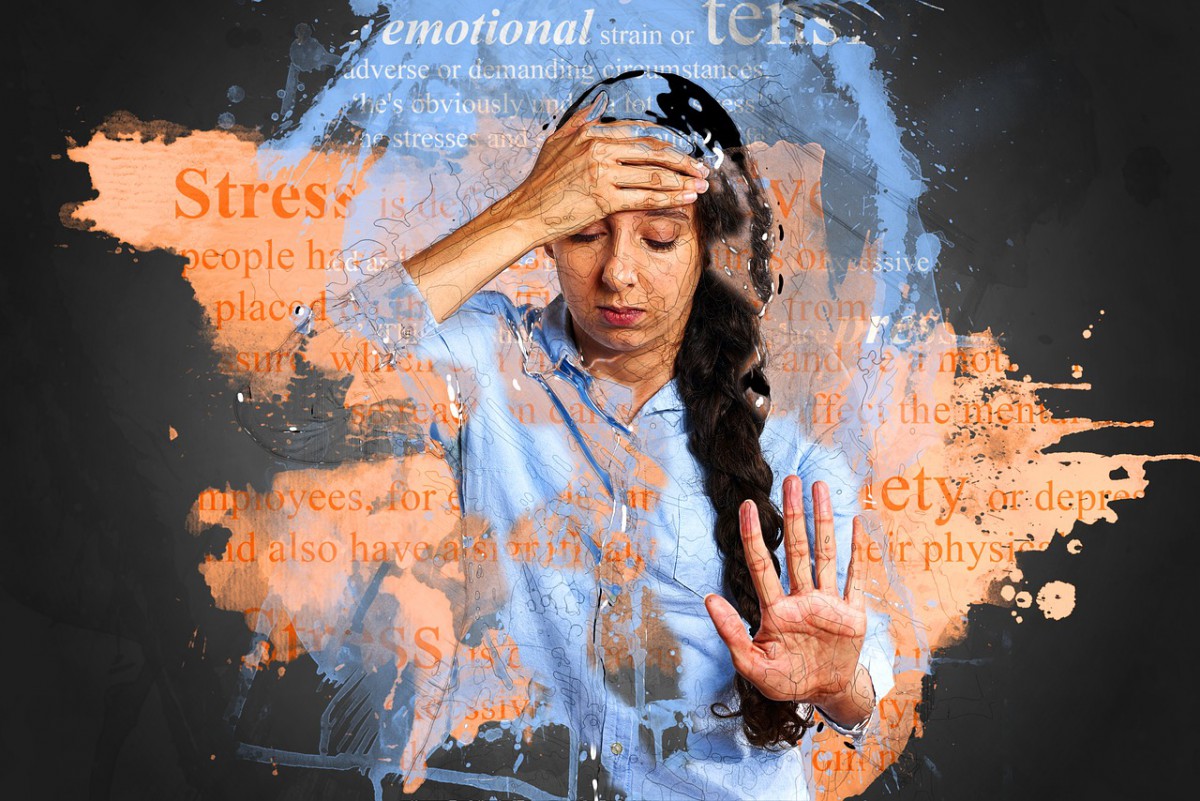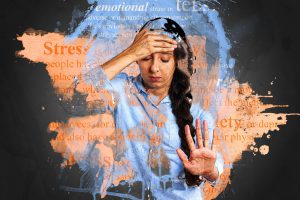There is nothing wrong with you
If you suffer from anxiety, first I want you to know that you are not the only one, and there is nothing wrong with you.
Judging yourself, critiquing yourself, putting yourself down, seeing yourself as a ‘case’ – they are the least helpful ways of dealing with anxiety and fear.
We all feel anxious from time to time. We all have fears. Generally, the difference between the two is understood to be the actual threat; fear being our response to an actual threat, anxiety being a fear-response to a less defined or unknown threat.
Some fear death or illness, many fear being alone, being cast out, not being good enough (shame is fear), being ‘bad’ (guilt is also fear), flying, spiders – and the list goes on.
Fear is normal and – sometimes – useful
First of all: fear is completely normal and useful when it comes to identifying danger. It tells you to hide from a fierce thunderstorm, seek cover in the event of an attack, and take care of a wound that does not heal itself.
But a great deal of danger exists only in our minds, and unfortunately our stress system does not distinguish between real and imagined danger.
Perhaps you’re more prone to it than others, or perhaps you even suffer from what’s called anxiety disorder. In general, we tend to call something a disorder when it prevents a person from living a normal life. Which begs the question: what is a normal life?
See, I’m all for normalizing who you are. Because we are all unique, and none of us have got it all together (no, that’s right, me neither).
Needless to say if you experience extreme mental suffering, that’s a very good reason to see a therapist or a psychiatrist and I don’t mean to belittle your suffering in any way. Self-help is not always enough.
But you are here on my blog, which tells me you suffer from a level of anxiety that bothers you enough to want to find ways to deal with it better, without having to take medication. Good for you. Because of course you want to fully express yourself, feel free, balanced and uninhibited, sleep soundly and deeply, feel rested, energetic and up for life’s challenges.
There’s actually a lot you can do to manage your anxiety without resorting to all kinds of medication. Mind you, I’m not judging if you are taking medication – having been a migraine sufferer for the better part of my life I’ve really always preferred natural remedies, but sometimes you just need to get rid of the pain quickly and efficiently and natural remedies just won’t cut it, and there’s nothing wrong with that.
But on the other hand you don’t want to over-medicate.
Why it’s best to stay off medication
Before I give you my 8 best tips, let’s first establish why it’s important for you to take matters in your own hands and try to keep off the medication (again, depending on your particular situation).
Now I’m not a doctor and not a pharmacist, but I do know that doctors tend to prescribe anti-depressants for anxiety, and those have severe side-effects. They may attenuate the fear, but they have side-effects that could be identical to the very symptoms of your anxiety (sleeplessness, headaches, lack of energy – to name a few) and they tend to be addictive.
Talking of symptoms, how do you know if you suffer from anxiety above average?
These are 11 common anxiety indicators
1. you have trouble falling or staying asleep
2. you worry a lot
3. you often feel restless or agitated
4. you suffer from low energy and fatigue
5. you have trouble concentrating
6. you feel overwhelmed and feel you can’t cope
7. you are irritable
8. your body is tense
9. you have irrational fears
10. you tend to panic or have panic attacks
11. you avoid certain situations and places
So I have 8 tips for you
The first 4 support you in being less prone to anxiety.
But perhaps the most important ones are my tips for dealing with the fear once it’s there.
Because our go-to behaviours tend to be counterproductive.
Here goes:
1. Diet
I know you know this. But are you doing it? Cutting down on, or perhaps cutting out altogether: coffee, alcohol, tobacco and sugar. Yes, sugar too. If you want to know more about how sugar affects your mental health, and what to eat instead, go here.
2. Exercise
If you’re anything like me, you know this but don’t do it. I always call myself movement averse. I have been since my childhood days. I am a still kind of person. But I know my body needs to move. I know I feel better for it, not just physically. It’s taken me years to find a way of moving that I actually like, that I look forward to, that I’ve almost gotten addicted to. A class I won’t skip even though I feel exhausted. For me, it’s a unique blend of yoga, pilates and dance that a good friend teaches. For you, it may be yoga, running, tai-chi. It needn’t be expensive or take up hours a day. Even a daily walk will work wonders. Just do it.
3. Work on your sleep hygiene
Try and go to bed and get up at approximately the same time every day, don’t watch tv in bed, keep your bedroom aired and low on stimuli, don’t take alcohol and spices in the evening, turn off blue screens and devices and dim the light well before you actually turn in, listen to calming music or a guided meditation if you have trouble falling asleep.
4. Try mindfulness meditation and/or yoga
These practices teach you skills that increase a more flexible, calmer state of mind. You are working with your body and mind in such a way that you learn mental and physical flexibility and resilience. In the case of mindfulness meditation, there is now an increasing amount of research confirming that it actually changes the brain in such a way that self-referential mind chatter decreases and stable awareness increases. If you’re interested in scientific evidence, go here.
Fear of fear itself
Now an important reason why fear and anxiety are difficult to deal with, is that they are overwhelming emotions that can totally control us. And because we feel so helpless and out of control when we’re anxious, we’d rather avoid ever having to feel it at all, and try to get rid of it as quickly as possible in all kinds of (usually quite counterproductive) ways.
Here is the thing: we are actually afraid of the fear itself. Our physical system, which is primarily geared for survival, will react to anything unpleasant as a potential danger. So the cramped feeling that takes our breath away and obscures our clear thinking is seen as the enemy, and the body responds with more stress, and more anxious thinking. But the trouble is: once we are held hostage by fear, the rational mind is muted and we operate in a narrowed state of consciousness, which certainly does not improve matters.
We are trying to regulate an emotional ‘threat’ as if it is a life threat. And that, unfortunately, doesn’t work.
Our resistance to fear puts oil on the fire.
So what to do?
1. Stop fighting fire with fire
Get out of the fight/flight response that is keeping your rational mind hostage. Stop feeding the anxious thoughts that lead to the tendency to act out.
This is easier said than done, I know; once you are on your fear trip, it is not that easy to get out.
What helps is that you learn to recognize how the early stage of anxiety feels for you. Get to know your triggers and warning signs. That requires body awareness and paying attention.
2. Focus on the breath
A second step is to steer your awareness away from the anxious thoughts that fuel the stress reaction, and to focus your attention on your body and your breath. Sit down and especially feel your feet on the floor and your buttocks on the chair – shift your attention to your lower body, ground yourself.
3. Find a quiet place in the body
Another ‘trick’ is to find a place in your body where the fear is not felt (there is certainly a toe, knee or earlobe where the fear is not nestled), to bring your attention there and to experience that feeling. This helps you become aware of the fact that anxiety is not all that you are. There is anxiety, but it is not what you are.
4. Change your attitude towards fear and anxiety
Perhaps the most important thing: instead of seeing fear as the enemy, you better see it as a hurt child or a wounded animal. Let your attitude to your own fear be the same as it would be to that child or animal. Gentle, understanding, comforting.
Love is the most powerful antidote to fear.
Not an overnight change
get my free meditation here
Now I know, from over 10 years of teaching mindfulness and meditation, that simple as these practices sound, they are not. Our brain is wired for survival, and this means that the neural pathways we have created over the years with our automatic responses, are strong and easily triggered.
We can train the brain for more adequate responses, but ‘train’ is the operative word. This doesn’t happen overnight.
It takes dedication, trust and patience.
Free help
Guided meditations, ideally initially done in moments when you are not overwhelmed by anxiety, are a great way to train the brain.
I have a brief one for you (8 minutes) that helps you make an easy start.
You can get it here.


